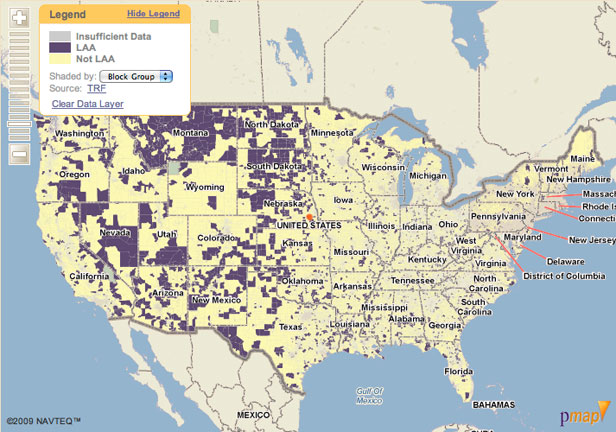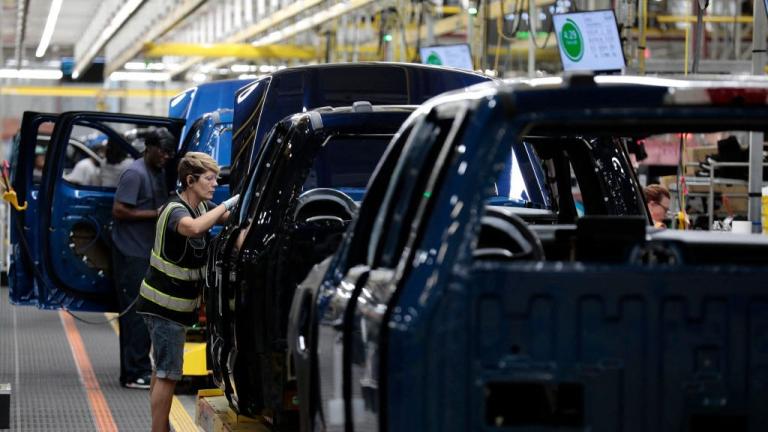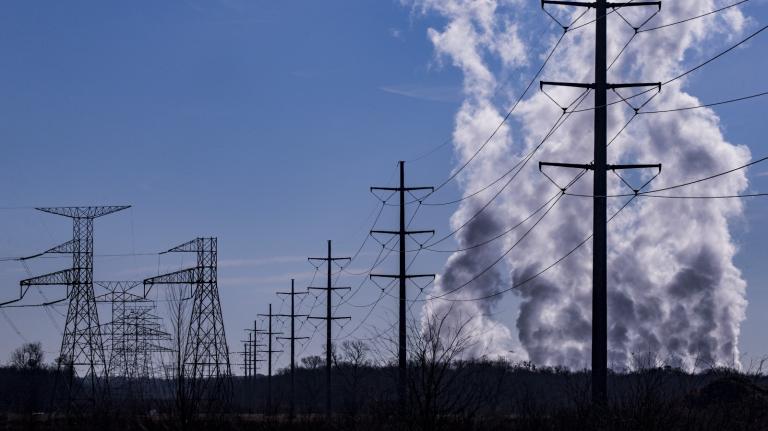Half of Americans polled by researchers at Yale University are woefully ill-informed about climate change, including the 43 percent that believe, “If we stopped punching holes in the ozone layer with rockets, it would reduce global warming.”
That’s the same percentage of Americans who are unaware it takes Earth one year to orbit the sun, so perhaps this poll is about as meaningful as a bowl full of tea leaves. Grist argues the poll indicates Americans are hungry to know more about climate, and once they do, they’ll start worrying, while risk expert David Ropeik argues more information won’t change anyone’s mind.
Where Americans learn about climate science: Everyone wants to pour their climate message into the chasm of ignorance, the Yale study revealed, including Glenn Beck and possibly an oil company-backed group of evangelicals, who are pushing the notion climate change is a “false religion,” says Think Progress.
Meanwhile, Republican West Virginia senate candidate John Raese says global warming is a “myth,” and his Democratic opponent, if you recall, recently shot the climate bill.
The Natural Resource Defense Council unveiled the results of a poll it claims shows voters support candidates who voted for cap-and-trade, but even progressives aren’t buying it. The Christian Science Monitor argues climate change simply isn’t a big campaign issue, even though Republican challengers to Democrat incumbents are uniformly against its existence.
Goodbye greenhouse gas regulation, hello energy policy: If Republicans take the House, Rep. Fred Upton (R-Mich.) promises to dismantle the House climate change committee and thwart the Environmental Protection Agency’s efforts to regulate greenhouse gases.
Perhaps there’s another plan to bolster clean energy Upton won’t be as averse to: a bipartisan proposal issued by think tanks arguing the U.S. should spend billions of dollars on clean energy innovation.
Climate Hawks gearing up to eviscerate climate appeasers: A nascent effort to re-brand “People Who Care About Climate and Clean Energy” as distinct from “environmentalists” has settled on the term “Climate Hawks.”
China’s clampdown on rare Earth minerals exports threatens global clean-tech industry: China has a global monopoly on the “rare earth” minerals without which the global clean-tech industry would grind to a halt, so when rumor hit the wires that it would be reducing exports of the materials, the response in some circles was apoplectic.
The Chinese government immediately moved to deny the reports, but it’s clear the issue has reached a turning point: Chinese domination of this market is forcing manufacturers to build factories in China itself, while Chinese media are explaining the environmental destruction wrought by the country’s mining of the minerals, which aren’t mined outside China because, in general, other countries aren’t prepared to deal with the toxic fallout from their extraction and processing.
Export reduction or no, here’s the bottom line: “Rare Earths Deposits in China Forecast to Last 15-20 Years, Ministry Says.”
New climate change impacts perfect for remake of Day After Tomorrow: Mega-landslides begotten by melting mountains could threaten 39 cities with populations above 100,000 in a warming world. Nearly a third of western Chinese glaciers could be gone by 2050, with significant impacts for downstream crop production.
Much of the globe, including the U.S., will be threatened by drought within decades, reports the National Center for Atmospheric Research. Meanwhile, “higher-latitude regions from Alaska to Scandinavia are likely to become more moist.”
Human influence on the environment, including climate change, means we are now in an era of “megafires,” says Popular Mechanics.
Rising temperatures are likely to shift the ranges of both aquatic and terrestrial animals — at a rate of 1411 feet per year, in the case of rattlesnakes and voles.
Zambia became the 18th country to document a record-high temperature in 2010. The academic tussle over whether or not warmer temperatures lead to more civil wars in Africa continues.
When clean energy subsidies go awry: The Spanish government is about to reduce subsidies to producers of solar power, which could hurt a lot of farme
rs who invested in panels. Some of the stimulus money used to weatherize homes in Illinois resulted in sub-standard workmanship, says a U.S. Department of Energy report.
China’s low-carbon energy incentives are almost three times those available in the U.S.; the Obama administration has promised to investigate these “unfair” subsidies.
What would have been the world’s largest tidal power project, the Severn barrage — big enough to supply five percent of the U.K.’s electricity needs — has been shelved for the umpteenth time.
Shakeups, reversals, and twists of fate in clean-tech development: Solar thermal power has been touted as a core climate solution, but is it doomed by the falling price of that other means for turning light into power, solar photovoltaics? Solar thermal projects, which tend to be gigantic, are currently plagued by a lack of financing, while a new development in solar PV could reduce the cost of panels by 40 percent.
The substantial cost of batteries for electric cars may not decline as in traditional economies of scale, as demand for them keeps pace with innovation.
Community colleges are gearing up to train Americans for green jobs.
The Climate Post offers a rundown of the week in climate and energy news. It is produced each Thursday by Duke University’s Nicholas Institute for Environmental Policy Solutions.




